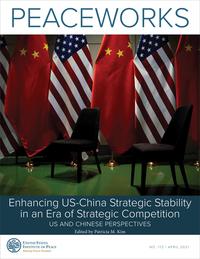Nuclear Security Policy in an Era of Strategic Competition
A Bipartisan Congressional Dialogue with Rep. Jeff Fortenberry (R-NE) and Rep. Bill Foster (D-IL)
Since the end of the Cold War, the United States has relied on diplomacy and the maintenance of its nuclear enterprise as a means of strategic deterrence. However, 30 years later, Russia and China are pursuing the maintenance and modernization of their nuclear weapons and systems — and the current U.S. construct is ill-suited to this new, complex geopolitical environment.
The Congressional Nuclear Security Working Group, co-chaired by Rep. Jeff Fortenberry (R-NE) and Rep. Bill Foster (D-IL), is a bipartisan caucus dedicated to facilitating awareness and engagement on the urgent threats posed by the prospect of nuclear proliferation and nuclear terrorism. The caucus goals include strengthening nuclear safeguards, securing fissile material and preventing the misuse and spread of sensitive nuclear materials and technologies.
On July 28, USIP hosted a conversation with Reps. Fortenberry and Foster to explore some of the key issues facing policymakers when it comes to nuclear nonproliferation, maintenance and modernization, and diplomacy in this era of strategic competition.
Continue the conversation on Twitter with #BipartisanUSIP.
Speakers
Rep. Jeff Fortenberry (R-NE)
U.S. Representative from Nebraska
@JeffFortenberry
Rep. Bill Foster (D-IL)
U.S. Representative from Illinois
@RepBillFoster
Lise Grande, moderator
President and CEO, U.S. Institute of Peace
Featured Publication
Enhancing U.S.-China Strategic Stability in an Era of Strategic Competition
As strategic competition between the United States and China intensifies, preventing a destabilizing arms race and lowering the risk of military, especially nuclear, confrontation is critical. The essays in this volume—based on a series of workshops convened by USIP’s Asia Center in late 2020—highlight both the striking differences and the commonalities between U.S. and Chinese assessments of the root causes of instability and the drivers of conflict in the nuclear, conventional missile and missile defense, space, cyberspace and artificial intelligence realms.




